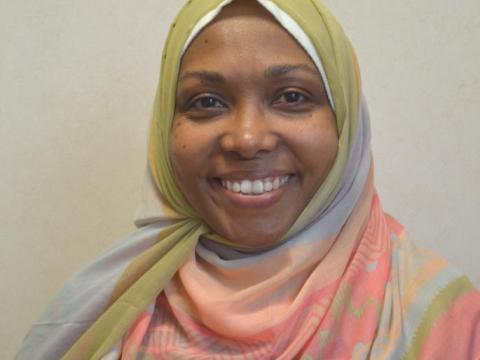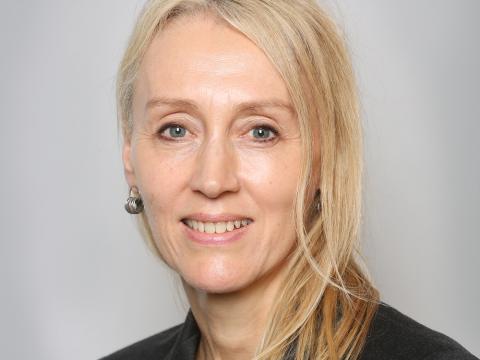Webinar: What does the pandemic mean for the nation’s health and health inequalities?
12 August 2020

The COVID-19 pandemic is having a huge impact on our society and economy but what are the implications for the nation’s health and how might it affect health inequalities?
Catch up on our webinar, recorded on the 12 August, where we discussed the pandemic’s implications for health and health inequalities. In this webinar we shared our learning so far, focusing on groups of people who have been particularly affected such as young people and Black and minority ethnic groups.
We examined the unequal impact of the pandemic, and the measures taken to control it as well as the priorities for local and national recovery.
And, as we move towards post-COVID-19 recovery, we explored what is needed to address health inequalities and to create the conditions for everyone to live a healthy life.
A subtitled version of this webinar will be available on this page shortly.
Speakers and topics
Speaking on: The impact of the pandemic on communities and black and minority ethnic groups
Muna Abdel Aziz is the Director of Public Health for Salford.
Muna has a medical degree and first started her career in public health in 1992 as an academic. She completed her MD in Sudan, PhD from Cambridge, and is professionally accredited as a specialist in public health in both countries. Muna worked as a Consultant in Public Health in Salford and Sheffield, then three years in the Sudan where she helped establish the National Public Health Institute in her role as Deputy Director.
Muna’s work has covered diverse topics like malaria, maternal and child health, long-term conditions, health impact assessments of industry, mobile health and retention of the health workforce. She led the ‘Health in Business’ programme and ‘Health in Planning’ to champion inclusive growth in Warrington.

Speaking on: A young person’s perspective on the impact of the pandemic
Evie is an illustrator, activist and campaigner.
Their work has a focus on young people’s mental health rights, and LGBTQ+ rights and equalities.

Speaking on: The economic impact of the pandemic and implications for health
Mike Brewer's research has covered aspects of inequality in income and wealth, including the role of the labour market and the impact of personal taxes and the social security system. He also has a long background in using microsimulation methods.
He is the author of a book, What Do We Know And What Should We Do About Inequality?, published by SAGE in 2019.

Speaking on: The impact of the pandemic on national health and health inequalities
Tim joined the Health Foundation in June 2018 as Assistant Director of Strategic Partnerships in the Healthy Lives team, working to address the social determinants of health.
Before joining the Health Foundation, Tim worked as Assistant Director and Consultant in Public Health in Thurrock Council where he commissioned a range of health improvement services and worked to strengthen prevention in children’s social care.
He has worked to improve the public's health in a range of public sector organisations in the UK including local authorities, Public Health England, and the Department for International Development. He also has experience of working with charities in Hong Kong and Nepal, where he worked on infectious disease control programmes.
He has an MA in Human Sciences from Oxford, an MPhil in Medical Anthropology from Oxford, and a PhD in Public Health from the University of Hong Kong.

Chair
Dr Jennifer Dixon joined the Health Foundation as Chief Executive in October 2013.
Jennifer was Chief Executive of the Nuffield Trust from 2008 to 2013. Prior to this, she was Director of Policy at The King’s Fund and was the policy advisor to the Chief Executive of the National Health Service between 1998 and 2000. Jennifer has undertaken research and written widely on health care reform both in the UK and internationally.
Originally trained in medicine, Jennifer practised mainly paediatric medicine, prior to a career in policy analysis. She has a Master’s in public health and a PhD in health services research from the London School of Hygiene and Tropical Medicine. In 1990–91, Jennifer was a Harkness Fellow in New York.
Jennifer has served as a Board member on several national regulatory bodies: the Health Care Commission 2004–2009; the Audit Commission 2003–2012; and the Care Quality Commission 2013–2016. She has led two national inquiries for government: on the setting up of published ratings of quality of NHS and social care providers in England (2013); and on the setting up of ratings for general practices (2015). She was also a member of the Parliamentary Review Panel for the Welsh Assembly Government advising on the future strategy for the NHS and social care in Wales (2017–2018).
In 2009, Jennifer was elected a fellow of the Royal College of Physicians, and in 2019 was elected as a fellow of the Academy of Medical Sciences. She was awarded a CBE for services to public health in 2013, and a Doctor of Science from Bristol University in 2016. She has held visiting professorships at the London School of Hygiene & Tropical Medicine, the London School of Economics, and Imperial College Business School.

Watch the video on how young people are affected by COVID-19
More on COVID-19 and health inequalities
Work with us
We look for talented and passionate individuals as everyone at the Health Foundation has an important role to play.
View current vacanciesThe Q community
Q is an initiative connecting people with improvement expertise across the UK.
Find out more

